Chickens can eat almost anything. But can they eat mushrooms, the kind of food that grows from fungus and looks like an umbrella?
Chickens could certainly eat mushrooms, but not all types. Mushrooms are safe to feed to chickens in certain parts, but it’s important to make sure they are served properly. I am going to reveal which types of mushrooms are healthy for your chickens and how to feed them. Can Chickens Eat Pineapple
Can Chickens Eat Mushrooms?
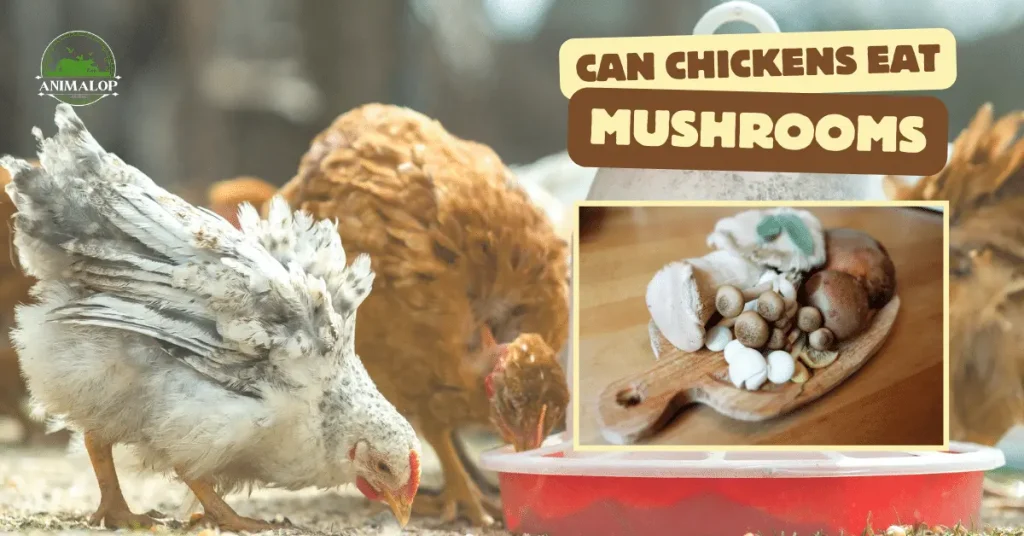
Chicken could have mushrooms as their snack however, you ought to be careful as not all mushrooms are safe. Make sure to give your chickens only the safe types to keep them healthy and happy. It’s important to know what you’re feeding them to avoid any health problems.
Chickens could eat everything, including mushrooms, however, everything may not be safe for their health.
As someone who looks after chickens, it’s your job to pick the right food for them to stay away from any dangers of eating the wrong thing.
There are over 10,000 kinds of mushrooms, but not all are safe for chickens. In fact, about 20% of these could be poisonous to chickens and humans as well. So, if you want to feed your chickens mushrooms, you need to be very careful. Make sure you know which types you’re giving them and that they’re safe for your chickens to eat.
What Type Of Mushroom Species Are Safe For Chickens?
You only ought to feed your feathered chickens the mushroom species which are safe for humans as well. Some of them are Button, Oyster, and Portobello mushroom types.
Oyster Mushrooms
These types of mushrooms are great for chickens. They look slightly like oysters and are safe for your birds to eat.
Studies show they can help lower cholesterol, reduce pain, improve brain health, stop cancer from growing, and protect cells from damage. Adding them to your chickens’ diet can be a tasty and healthy treat.
Button Mushrooms
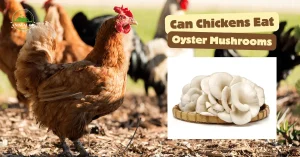
Button mushrooms are the ones you often see in stores and are safe for humans and chickens. However, there’s a catch.
A study found that they might have a tiny amount of a harmful toxin. To be safe, cook these mushrooms before giving them to your chickens. Cooking lowers the risk and makes them a better treat for your birds.
Portobello Mushrooms
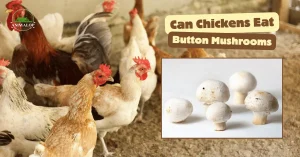
Chickens can eat Portobello mushrooms without any problems. They’re not poisonous, taste good, and are healthy for your chickens.
But remember, only give them these mushrooms once in a while and not too much. Even though they’re nutritious, they don’t have everything your chickens need for their diet, so they should just be a treat.
Other Safe Mushroom Species For Chickens
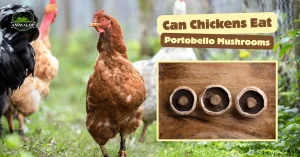
Other than button, oyster, and Portobello mushrooms, there are plenty of other mushrooms that are healthy for chickens to eat.
Some well-liked ones are:
- Maitake
- Lion’s mane
- Reishi
- Shiitake
Remember, you ought to give mushrooms to your chickens as a special snack, not their main food. Mushrooms are great as treats now and then, however, they ought not to replace their main food meals.
Risks Of Feeding Mushrooms To Chickens
Eating poisonous mushrooms can cause serious brain problems in your chickens.
It can lead to kidney failure.
It may cause stomach issues and bleeding.
It can even result in death.
Some effects can last a long time, causing permanent organ damage.
Benefits Of Feeding Chickens Mushrooms
Feeding your chickens mushrooms can be really good for them, but it’s important to know why before you start adding mushrooms to their diet. Here’s how mushrooms can help your chickens:
Helps Muscles Grow
Mushrooms are full of nutrients, including proteins, which are important for building and keeping strong muscles in your chickens.
Boosts the Immune System
Some mushrooms, such as shiitake and reishi, come with antioxidants. These help fight off harmful substances in the body and keep your chickens’ immune systems strong.
Good for Overall Health
Mushrooms give your chickens lots of vitamins and minerals they need, like potassium, zinc, phosphorus, and B vitamins. This helps keep them healthy all around.
Improves Gut Health
Mushrooms can also help chickens grow better and stay healthier by improving the good bacteria in their guts, helping their bodies fight off diseases, and even making their intestines healthier.
Better Eggs
For chickens that lay eggs, adding mushrooms to their diet can make the eggs better.
Mushrooms can increase the amount of antioxidants in the chickens, which can lead to better egg laying, improve the quality of the eggs, make the fats in the eggs healthier, and lower the bad stuff in the eggs. They can also help keep harmful bacteria away and reduce bad smells.
How To Feed Chickens Mushrooms
Feeding chickens mushrooms involves more than just picking the right kind. Here’s how to do it properly:
First, whether you buy mushrooms from the store or find them in your yard, make sure to wash them well. This gets rid of dirt and any chemicals on them. Use clean water and make sure to wash them thoroughly to remove anything harmful on the surface.
Next, chop the mushrooms into pieces. If your chickens like mushrooms more when they’re raw, you can give them to them like that.
But, if it’s your first time giving mushrooms to your chickens and you’re not sure if they’ll like them raw or cooked, try cooking them. Most chickens will prefer cooked mushrooms if they’re given the choice.
Cook them in a non-stick pan over low to medium heat without adding oil, salt, or any other seasonings, as these can be bad for your chickens.
If the mushrooms are thick, cook them for 5 to 10 minutes. Thicker pieces may need a little more time.
Once the mushrooms are ready, remember to serve them in moderation. You can give them to your chickens by themselves, or mix them into their regular feed for a bit of variety. Another idea is to serve them with other treats, but make sure these extra snacks don’t replace their main food.
FAQs
Final Thoughts
Mushrooms can be either good or bad for chickens, depending on what kind you give them. Stick to the types that are safe to eat, as these are usually okay for your chickens.
If you’re not sure about which mushrooms are safe, ask an expert or just buy the ones from the grocery store to avoid giving your chickens something poisonous.
Remember, mushrooms should just be a special snack, not the main part of your chickens’ diet. If you pick the right mushrooms, prepare them properly, and don’t overdo it, your chickens can enjoy this treat safely and get some benefits from it.

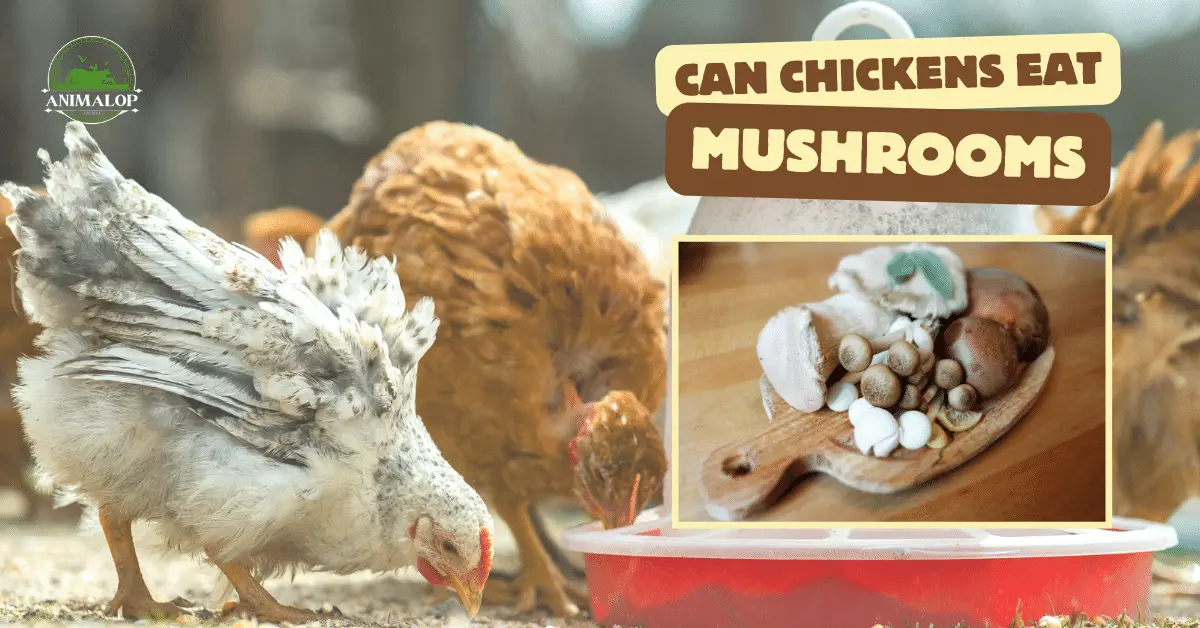

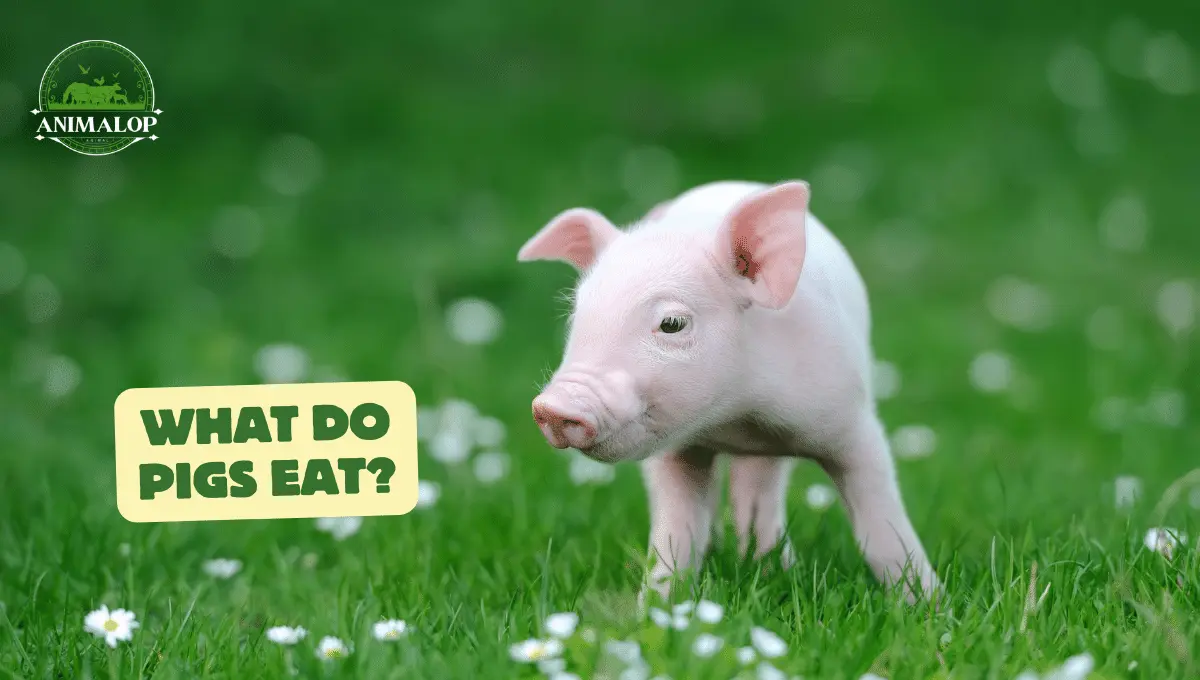
2 Comments on “Can Chickens Eat Mushrooms: 3 Safe Species & Health Benefits”